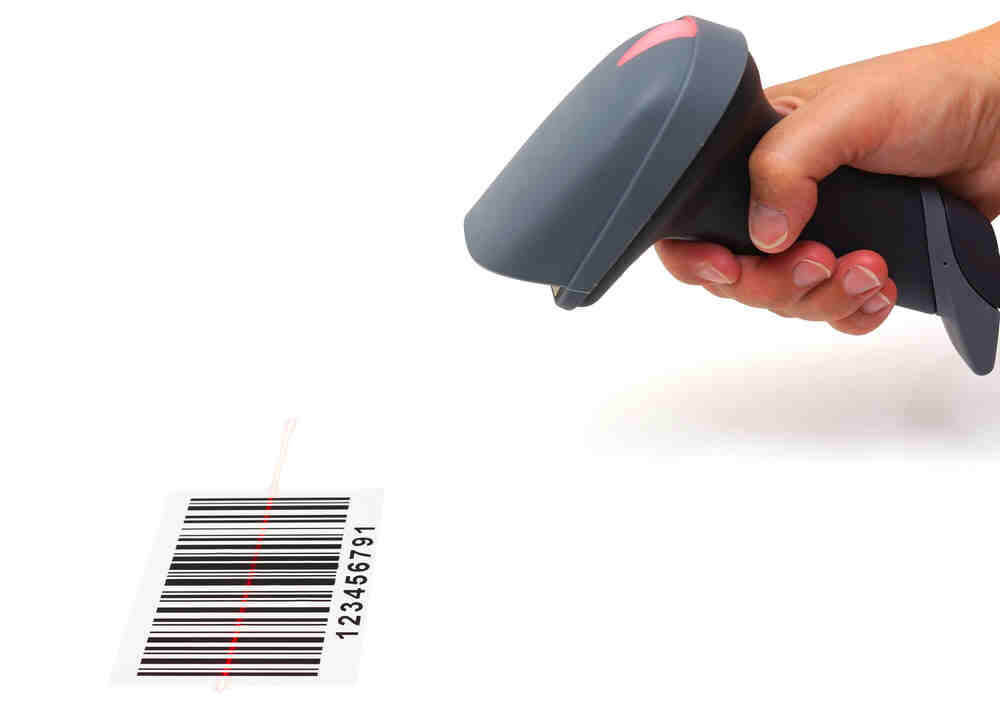Selecting the Right Barcode Scanner for Your Service Demands
Choosing the ideal barcode scanner for your service needs a nuanced understanding of your particular operational demands and ecological conditions. Factors such as scanner type, speed, and compatibility with existing systems play a pivotal duty in determining the right selection. Furthermore, factors to consider around resilience, connection, and the total expense of ownership can substantially impact lasting performance. Comprehending these elements is vital, yet several businesses overlook vital facets that can influence their overall productivity. The following actions in this procedure can make all the difference for your procedures.
Recognizing Barcode Scanner Types
When it concerns choosing a barcode scanner, recognizing the different kinds readily available is vital for meeting specific company requirements. Barcode scanners can be classified into several kinds, each made for different applications and atmospheres.
Handheld scanners are one of the most typical, offering mobility and convenience of use, making them suitable for retail and supply management. They generally attach using USB or Bluetooth, providing flexibility in procedure. Fixed-mount scanners, on the various other hand, are designed for high-volume scanning applications, usually discovered in assembly lines or checkout counters. These scanners are installed in a fixed position, enabling for quick scanning of numerous items one by one.
An additional type is the mobile computer system, which integrates scanning capabilities with calculating power. These gadgets are optimal for area operations or warehouse administration, making it possible for information collection and real-time inventory tracking. In addition, there are industrial scanners that are built to withstand rough settings, such as severe temperature levels or exposure to dirt and moisture.

Secret Attributes to Think About
What essential features should businesses focus on when choosing a barcode scanner? Primarily, scanning rate is crucial, as faster scanners boost functional performance, specifically in high-volume settings. The scanner's capability to review different barcode styles is additionally essential; ensure it supports popular types like QR codes, UPC, and Code 128 to suit varied supply items.
Longevity is an additional essential feature, specifically for companies in rugged setups. Look for versions that are built to stand up to drops, dirt, and dampness. Furthermore, take into consideration the connection choices readily available; whether you prefer USB, Bluetooth, or Wi-Fi, the right connection can improve integration with existing systems.

Evaluating Your Company Environment
To efficiently select a barcode scanner, companies need to analyze their particular functional environment. This evaluation consists of examining the physical format of the workspace, the nature of the items being scanned, and the common conditions under which scanning happens. For example, a retail environment might need handheld scanners that can quickly refine transactions at the check out, while a warehouse setting might benefit from ruggedized scanners developed to sustain harsher conditions.
Additionally, think about the quantity of scanning needed. High-throughput atmospheres may require sophisticated scanning technologies, such as fixed-position scanners or smart phones that can run efficiently in fast-paced situations. The assimilation capacities with existing inventory monitoring systems additionally play a critical role; ensure the chosen scanner can seamlessly attach with software program platforms in operation.
Furthermore, assess the capacity for development and scalability. A scanner that satisfies existing demands could not be enough as organization expands. By thoroughly evaluating these variables, services can pick a barcode scanner that not only satisfies prompt requirements yet additionally supports long-lasting functional effectiveness and adaptability. This critical strategy inevitably contributes to smoother procedures and enhanced efficiency.
Budgeting for Your Scanner
Having actually assessed the operational atmosphere and determined the particular requirements for a barcode scanner, the next step includes careful budgeting my website to ensure a clever monetary investment. Establishing a spending plan begins with figuring out the general prices connected with the scanner, consisting of initial acquisition cost, functional expenses, and potential maintenance fees.
When choosing a barcode scanner, think about the variety of offered choices, from handheld devices to fixed-position scanners, as prices can vary significantly. It is necessary to balance expense with functionality; selecting a much more affordable version might result in increased operational ineffectiveness if it does not fulfill your business requirements.
Along with the hardware, consider prices associated to software, training, and prospective upgrades. While it may be appealing to decrease in advance expenditure, buying a high quality scanner that straightens with your operational requirements can produce long-term savings with enhanced performance and minimized downtime.
Lastly, think about the overall expense of possession, which incorporates the scanner's life-span and prospective resale value. By carefully preparing your spending plan, you can guarantee that your financial investment in a barcode scanner will certainly improve your operational performance and economic performance.
Combination With Existing Solution
Incorporating a barcode scanner with your existing systems is crucial for optimizing its efficiency and making sure smooth procedures. barcodes scanners. A well-integrated scanner boosts process efficiency, reduces errors, and accelerates information processing. When picking a barcode scanner, take into consideration compatibility with your current software application and equipment facilities, including your supply administration systems, point-of-sale (POS) systems, and enterprise source preparation (ERP) options
Examine whether the scanner utilizes conventional procedures such as USB, Bluetooth, or Wi-Fi, which can assist in easy assimilation. Furthermore, examine whether the scanner's software application uses APIs or SDKs that i was reading this allow for customization and assimilation with proprietary systems. This is particularly essential for organizations with distinct functional needs.
As your service grows, your systems need to be able to accommodate extra scanners and deal with increased data quantities without substantial reconfiguration. Ultimately, spending in a barcode scanner that perfectly integrates with your existing systems will yield lasting advantages, boosting precision, efficiency, and total performance within your operations.

Conclusion
In conclusion, picking a proper barcode scanner demands an extensive analysis of different factors, consisting of scanner types, crucial features, and the particular business atmosphere. The appropriate barcode scanner serves as an essential device in streamlining procedures and assisting in reliable supply administration.